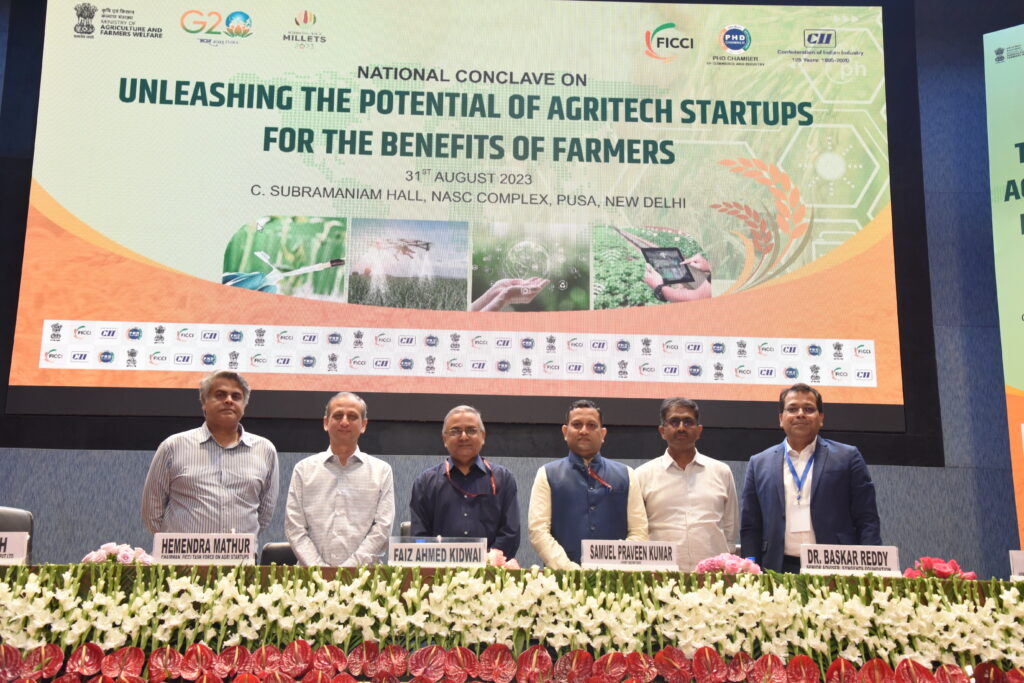
On 31st of August, Ministry of Agriculture & Farmers Welfare, Government of India organised the National Conclave on “Unleashing the potential of Agritech Startups for the benefit of Farmers” at NASC Complex, Pusa , New Delhi. For the first time, the Ministry partnered with all major industry associations, PHD Chamber of Commerce and industry, FICCI and Confederation of Indian Industry to organise day long deliberations on diverse farmer issues and the role digital technologies can play to alleviate the same.
I was fortunte that PHD Chamber of Commerce and industry chose me to chair and moderate the session on “Social Innovations to make Agtech Solutions accessible to Farmers.” Here are the takeaways from the session that were presented to the ministry in the concluding session:
1. There is a need to place the farmer at the heart of innovation. Value chain and commodity focused innovations have not considered the farmers’ ease of adoption and ROI on tech investments. Need to rethink farmer as a user.
2. There is a need for a demand/need led Innovation ecosystem.
3. Need to address uncertainty avoidance of farmers by offering complete and verified solutions.
4. Social innovation helps in taking new technologies and products to the farmers. There is a need to encourage this as an implementation mechanism. We discussed use cases where community engagement was seen as a part of tech implementation.
5. Scale driven funding keeps out numerous solutions that are actually needed. This is why, social innovation needs to be drastically different from the core technology funding approach.
6. Currently, many innovations only reach the top 10% of farmers. Rest remain at the periphery of all outreach. There is an urgent need to address them too.
7. There is a need to design innovation programmes that reduce innovation disparity. There is a need to build bridges between incubators inside for eg. universities and ones focused on more matured startups.
8. Social innovation needs to focus on reducing drudgery of agriculture and increase its appeal. Focus on non-digital and mechanical innovations to encourage the same the way digital technology is being promoted.
9. High risk capital allocation needs to be made for social innovation.
10. While we appreciate current programs, we need to do a gap analysis as early stage and high capital fund need is still unaddressed.